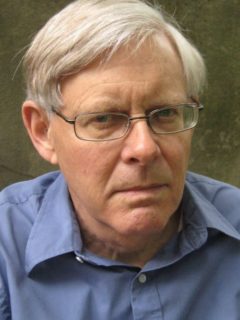
Robert Stalnaker
Professor of Philosophy, Emeritus, Massachusetts Institute of Technology
Howison Lectures in Philosophy
October 27, 2021 — 4:10 PMThis virtual lecture will be live streamed
There is a puzzle about counterfactuals that parallels a more familiar puzzle about free will. The familiar puzzle is the apparent incompatibility between free will and determinism. The more abstract and general puzzle is raised by the following argument: it seems to follow from the hypothesis that determinism is true that if things had been different from the way they in fact are in any way at all (for example, if I had woken up five minutes later this morning than I did), then either a law of nature would have been violated, or the state of the world in the remote past would have been different from the way it actually was, neither of which seems plausible. I will argue, first, that the general puzzle gives us reason to look more closely at the details of the semantics for counterfactuals, and second that the parallel with the standard argument for incompatibilism (labeled ‘the Consequence Argument’) gives us reason to look more closely at the central role of counterfactuals in practical reasoning. In this context, I will look at some debates about the foundations of decision theory, and at the interaction of causal, epistemic, and temporal concepts in reasoning about what to do, and about how to explain why rational agents do what they do.
This virtual lecture will be live streamed - Berkeley Graduate Lectures [email protected] false MM/DD/YYYYLecture Live Stream (below) or View Directly via YouTube
Submit your questions here during the event!
Download the associated handout for this lecture
About the Lecture
There is a puzzle about counterfactuals that parallels a more familiar puzzle about free will. The familiar puzzle is the apparent incompatibility between free will and determinism. The more abstract and general puzzle is raised by the following argument: it seems to follow from the hypothesis that determinism is true that if things had been different from the way they in fact are in any way at all (for example, if I had woken up five minutes later this morning than I did), then either a law of nature would have been violated, or the state of the world in the remote past would have been different from the way it actually was, neither of which seems plausible. I will argue, first, that the general puzzle gives us reason to look more closely at the details of the semantics for counterfactuals, and second that the parallel with the standard argument for incompatibilism (labeled ‘the Consequence Argument’) gives us reason to look more closely at the central role of counterfactuals in practical reasoning. In this context, I will look at some debates about the foundations of decision theory, and at the interaction of causal, epistemic, and temporal concepts in reasoning about what to do, and about how to explain why rational agents do what they do.
About Robert Stalnaker
Robert Stalnaker received his PhD from Princeton University in 1965, and subsequently taught, over the next fifty years at Yale University, the University of Illinois at Urbana-Champaign, Cornell University and MIT. He is the author of four books: Inquiry (MIT Press, 1984), Our Knowledge of the Internal World (Oxford, 2007), Mere Possibilities (Princeton Press, 2012), and Context (Oxford, 2015). In addition, he has published three collections of papers, all with Oxford: Context and Content (1999), Ways a World Might Be (2003), and Knowledge and Conditionals (2019). He is a fellow of the American Academy of Arts and Sciences, and a corresponding fellow of the British Academy.
About the Howison Lectures in Philosophy
In 1919, friends of Professor George Holmes Howison, many of whom had also been his students, established the Howison Lectures in Philosophy at the University of California. In their bequest, the donors wrote, “Professor Howison held the reasoned conviction that this world to its very depth is kindred to the human spirit; that it is a community of free persons, finite and infinite, sustained by the vision of the Perfect; and all his great powers were directed to awaken in others a loyalty to these ideas. And those, it would seem, would most speak from a foundation in his memory who were able to share with him this high purpose and conviction.”